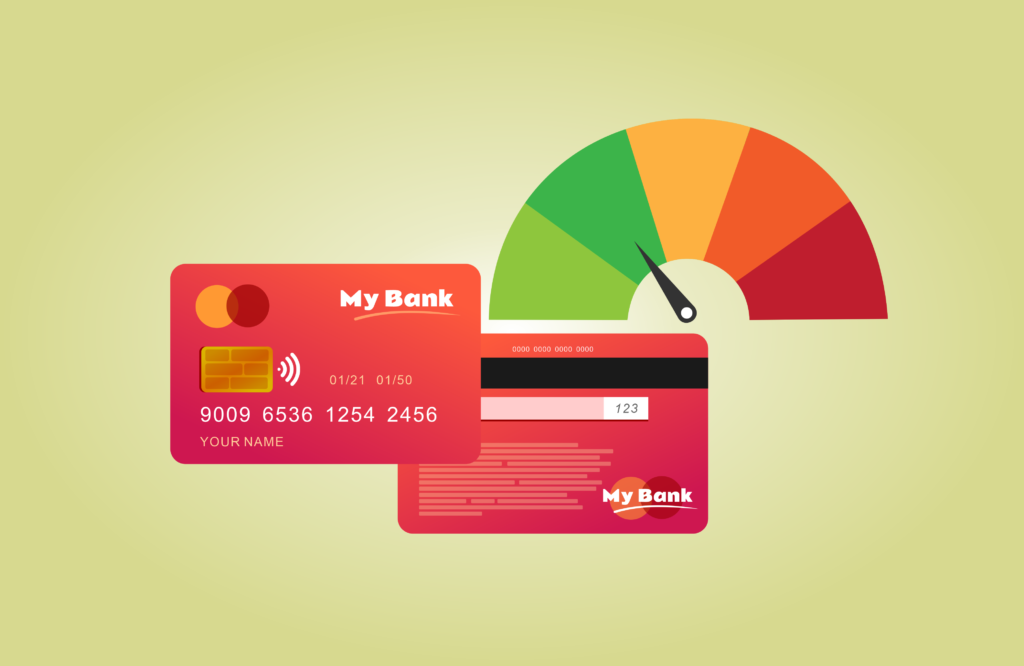Do you check your credit score and feel confused by how it’s calculated—or wonder why it hasn’t gone up like you thought it would? If so, you’re not alone. Many people are held back by common credit score myths that just won’t seem to die.
Let’s break down these popular misconceptions, so you can stop them from creeping into your money mindset and finally take control of your credit.
Why Understanding Credit Score Myths Matters

Your credit score plays a big role in your financial life. It affects:
- Your ability to get approved for loans or credit cards
- The interest rates you’ll pay
- Your chances of renting an apartment
- Even job opportunities in some cases
That’s why believing the wrong things can cost you—literally. So let’s separate the facts from the fiction.
Myth #1: You Only Have One Credit Score
Sounds simple, right? But here’s the truth: you have more than one credit score.
Different credit reporting agencies—like Equifax, Experian, and TransUnion—each create their own version of your score. Plus, lenders may use different scoring models like FICO or VantageScore.
What to do instead: Keep an eye on your credit reports from all three bureaus, not just one. Reviewing regularly helps you catch mistakes or signs of fraud early.
Quick Tip:
You can get a free copy of your credit report from each agency once a year at AnnualCreditReport.com.
Myth #2: Checking Your Credit Hurts Your Score
Have you avoided checking your credit because you’re afraid it’ll bring your score down? You’re not alone! This is a very common belief—but it’s totally false if you’re doing what’s called a “soft” inquiry.
Soft checks, like when you check your own credit, don’t affect your score. It’s only when lenders do a “hard” inquiry (like when you apply for a loan or credit card) that it might dip slightly—and temporarily.
Bottom line: Don’t be scared to look at your credit. In fact, regularly checking your report is one of the best ways to stay on top of your financial health.
Myth #3: Closing Credit Cards Will Improve Your Credit
It might seem logical: fewer cards, less debt, better credit. But unfortunately, this one can backfire.
When you close a credit card, you reduce your overall available credit. That can raise your credit utilization rate—the amount of credit you’re using versus the total credit available to you—and that can hurt your score.
Example: If you have $5,000 total in credit and owe $1,000, your utilization rate is 20%. If you close a card with a $2,000 limit, suddenly your rate jumps to 33%—even if you didn’t spend a dime more.
Instead: Consider keeping your older cards open, especially if they don’t have annual fees. This will help keep your credit history long and your utilization low.
Myth #4: You Have to Carry a Balance to Build Credit
Have you heard that leaving a balance on your card builds credit? Nope. Not true.
You don’t need to carry a balance—and pay interest—to improve your credit. What matters most is that you use your credit and pay it off on time.
Treat your credit card like a debit card: use it, then pay it off each month. Your score will thank you, and so will your wallet.
Quick trick:
Set up automatic payments to avoid missing a due date. A single late payment can stay on your report for years!
Myth #5: All Debt Is Bad for Your Credit Score
Not all debt is evil. In fact, having a mix of credit types—like credit cards, car loans, or student loans—can actually help your score.
What matters is how you manage the debt:
- Are you paying on time?
- Are your balances low?
If so, having some debt can actually show lenders you’re responsible and trustworthy.
Myth #6: Your Income Affects Your Credit Score
Surprised? Many people think their income plays a role in calculating their credit score. But it doesn’t.
Credit scores don’t know how much money you make. They’re based solely on your credit history:
- Payment history
- Amounts owed
- Length of credit history
- Types of credit used
- New credit inquiries
So even if you earn a six-figure salary, maxing out your cards and making late payments can still tank your score.
So… What Really Helps Boost Your Credit Score?

Now that we’ve busted the most common myths, here’s what you can do to move your score in the right direction:
- Pay on time—every time
- Keep balances low—under 30% of your total credit limit
- Don’t close old accounts if you don’t have to
- Manage different types of credit responsibly
- Limit new credit inquiries unless you really need them
Bonus Tip:
Consider setting up payment reminders on your phone, or blending bill dates with your paychecks to make it easier to stay on track.
Final Thoughts: Know the Truth, Take Control
The bottom line? Believing myths about credit can hold you back from improving your financial future. But once you start learning the facts, you can make smarter, more confident decisions.
Think of your credit like a garden. With patience, the right tools, and a little know-how, you can grow it into something strong and healthy. And the best part? It’s never too late to start tending to it.
So—what credit myth did you believe before today? And what small step will you take this week to boost your score?
Let us know in the comments and share this post with a friend who might be clinging to one of these myths too!
You’ve got this. Your credit future starts now.

